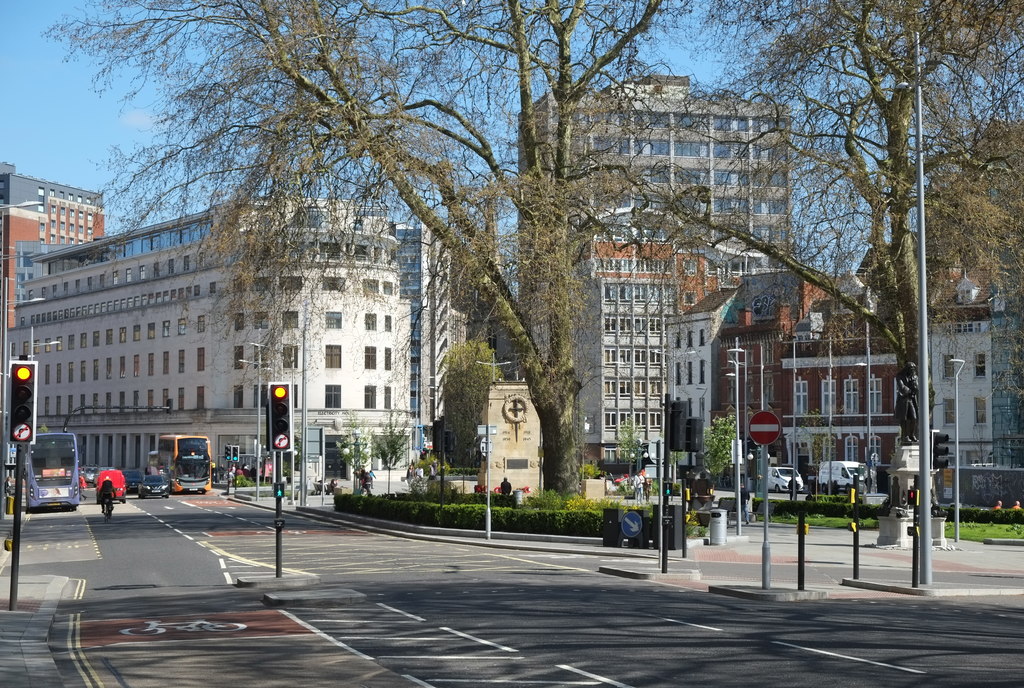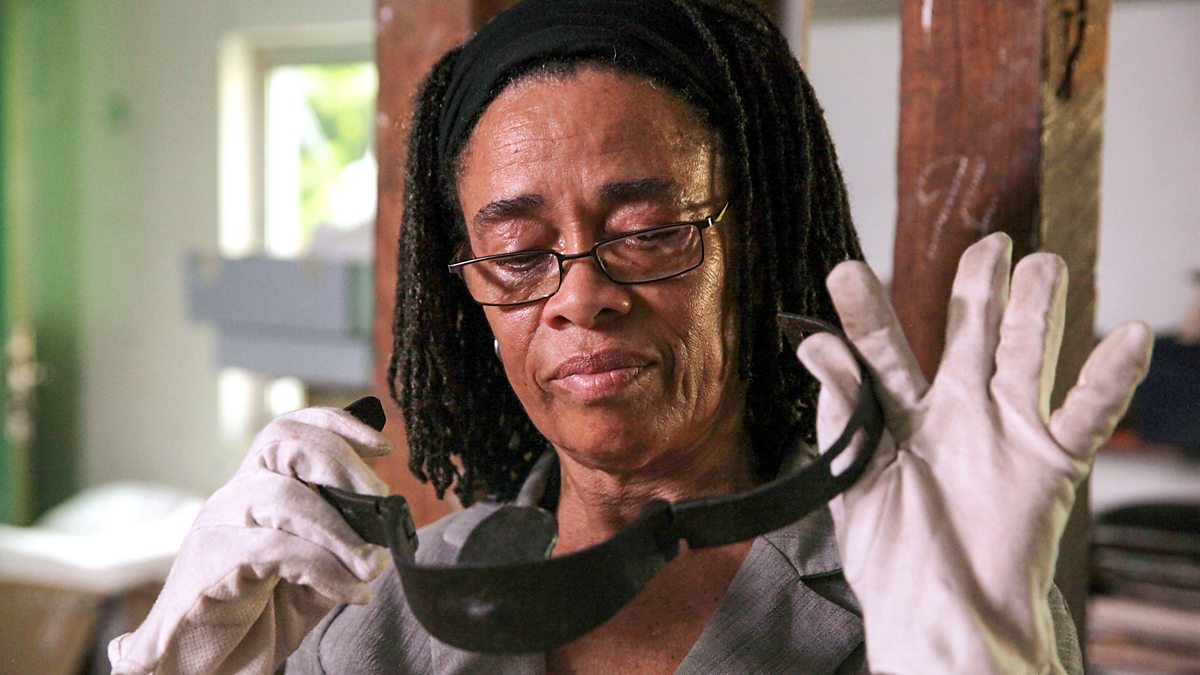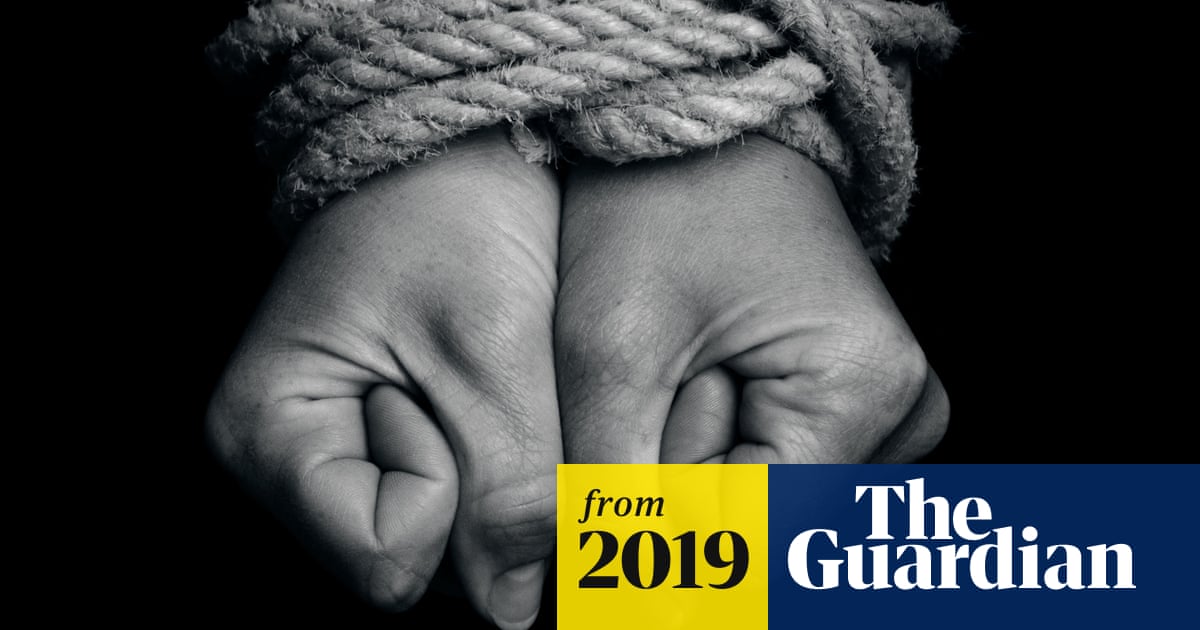
Statues
Collapse
X
-
Not sure whether this has been inked to before: https://rochdaleherald.co.uk/2020/06...insist-police/
Comment
-
-
That is true.Originally posted by muzzer View PostAs I understand from Bristolian friends, and there may of course be other Bristolian forum members, this event has got the council off the hook, it having failed to grasp the nettle of how to deal with the statue, whilst accepting that something had to be done
Although not a Bristolian by birth I've lived in Bristol for over 50 years and have mixed feelings about what happened yesterday. I find it disturbing. I am also somewhat put off by the symplistic media reporting and all and sundry jumping out of the woodwork to pontificate (not the posters here).
Personally I would have been in favour of putting a prominent plaque on the statue.
It was situated in one section of what Bristolians call "The Centre". It was quite prominent but in an area that I always think of a "no man's land" - towards the right in this photo, hiding behind a lamp post.

I wonder how much the memories of the Bristol buses back in the 1960s plays a part in the feelings of the black community here. (Quite disgracefully black and asian people were refused employment on the Bristol buses.)
There are so many roads, buildings and institutions in Bristol that named after Edward Colston - are we going to rename everything?
What about tearing down the statues and memorials to King Charles II and King James II who set up the Royal African Company?
In a way I am glad that the issue of the statue has been resolved - though, as I said, I am disturbed at how it was done. But it changes absolutely nothing and I have the lurking feeling that it in some way it is a move towards cleansing the past.
The vocal folk on the local coronavirus WhatsApp support group were celebratory last night.
I am left somewhat disturbed, in two minds, unsure.Last edited by johnb; 08-06-20, 22:12.
Comment
-
-
I wondered about this, especially as Colston Hall is on Colston Street according to its address info. Or would they get round that by changing the address - put the entrance on another road?! Otherwise the problem has only been partially solved I would have thought.Originally posted by johnb View PostThat is true.
Although not a Bristolian by birth I've lived in Bristol for over 50 years and have mixed feelings about what happened yesterday. I find it disturbing. I am also somewhat put off by the symplistic media reporting and all and sundry jumping out of the woodwork to pontificate (not the posters here).
Personally I would have been in favour of putting a prominent plaque on the statue.
It was situated in one section of what Bristolians call "The Centre". It was quite prominent but in an area that I always think of a "no man's land" - towards the right in this photo, hiding behind a lamp post.

I wonder how much the memories of the Bristol buses back in the 1960s plays a part in the feelings of the black community here. (Quite disgracefully black and asian people were refused employment on the Bristol buses.)
There are so many roads, buildings and institutions in Bristol that named after Edward Colston - are we going to rename everything?
What about tearing down the statues and memorials to King Charles II and King James II who set up the Royal African Company?
In a way I am glad that the issue of the statue has been resolved - though, as I said, I am disturbed at how it was done. But it changes absolutely nothing and I have the lurking feeling that it in some way it is a move towards cleansing the past.
The vocal folk on the local coronavirus WhatsApp support group were celebratory last night.
I am left somewhat disturbed, in two minds, unsure.
Comment
-
-
When New Labour came to power, Robin Cook, in one of his first acts as Foreign Secretary, decided that a physical manifestation of Labour’s ethical foreign policy would be the removal of the portrait of Maharaja Sir Bir Shamsher Jang Bahadur Rana that hung in his private office. Rana had served as Prime Minister of Nepal at the time of the Raj, and it was considered to be an overt reminder of Britain’s imperial past. It was replaced by a portrait of that fine republican, Oliver Cromwell.Originally posted by Frances_iom View Posthow about statues of Oliver Cromwell - his troops were responsible for very many deaths of Irish Catholics. My mother told me of one old Irish lady who would spit on a certain statue of the Lord Protector every time she passed it.
Unfortunately, one of the first visitors following the replacement was Bertie Ahern. As he entered Cook’s office to be presented with a portrait of the hated Cromwell, he turned on his heels and walked out and refused to return until the portrait of “that murdering bastard” had been removed."I do not approve of anything that tampers with natural ignorance. Ignorance is like a delicate exotic fruit; touch it and the bloom is gone. The whole theory of modern education is radically unsound. Fortunately in England, at any rate, education produces no effect whatsoever. If it did, it would prove a serious danger to the upper classes, and probably lead to acts of violence in Grosvenor Square."
Lady Bracknell The importance of Being Earnest
Comment
-
-
This from author Philippa Gregory (via FB)
Edward Colston and I go back a long way. I first came across him in 1968 when I won a scholarship funded by him, to attend a school founded by him: Colston’s School for Girls, I learned the school’s tradition of founder's day - when the choir, me among them, sung ‘Let us Praise All Famous Men’, and the entire senior school wore his favourite flower - bronze chrysanthemums - in our buttonholes and threw them at his statue by way of thanks for our education and for the many Bristol facilities that he established - from alms houses, to the famous Colston Hall.
I only learned of his connection with the slave trade in an exceptionional sermon at my last founder's day at school - which let the cat out of the bag before the barely-listening schoolgirls. Though we had by then all studied slavery in our history lessons, no-one had made the controversial connection between our school and slavery. With growing amazement, I learned that Edward Colston was born in Bristol in 1636 to a wealthy merchant family. Leaving for London he was a successful trader, joining the Royal Africa Company where he, working under a Royal warrant, traded more than 85,000 slaves including 12,000 children, of whom more than 19,000 died.
Edward Colston became chief executive - the Deputy Governor - before he retired to Bristol with his massive fortune. He returned to a city which had been the second greatest slaving city in England and he was welcomed as a successful son. His statue was erected a decade AFTER the abolition of slavery, and was intended to honour him, a man who had made his fortune from cruel and inhumane activity, in the very heart of a slave-trading city.
Years later, in 1995, I wrote A Respectable Trade. A novel set in 1787, about the almost-unknown slaves who were trafficked and exploited in England. At the time, though anyone could read the dozens of daily advertisements for runaway slaves in eighteenth century newspapers, there was a lazy assumption by most historians that these were personal slaves brought into England by returning West Indian planters. In fact, African slaves were directly imported into England, mostly for domestic work, black children especially little boys, became a fashion accessory as pageboys. The novel was intended to fictionalise a history which was little known, and still denied. When I adapted it for a BBC TV series there was a renewed interest in Bristol where more and more people were starting to explore the city’s links with slavery.
The people of Bristol have been discussing what to do with Colston’s statue for years. I believe it should have been taken down long ago, carefully and responsibly as a work of art (not very good art) and an important document of history. Maybe after World War II when Bristol was protected by black American soldiers, as a way of thanking them? Maybe after the St Paul’s riot in 1980? Maybe after the petition signed by 11,000 people? In 2018 the council agreed to add a plaque noting his involvement in the slave trade but no-one could agree on the wording - a not untypical problem for a city which has always been reticent about its slaving past.
But now - since the authorities didn’t quite want to bite the bullet - the people have done it for them. Next will come the debate as to what should be done with it. Within a few years of WWII ending, most celebrations of the Hitler and Nazi regime were banished from public view. The statue of Sadam Hussein, ceremoniously toppled by the Iraqi people with the support of the American Army, was apparently scrapped. So what to do with Colston? Leave him at the bottom of the harbour?
I think it should be raised and be the first element in a sculpture park of fallen statues - like the memorial parks to the tyranny statues in the former Soviet Union. I visited the Moscow park years ago, before it was “improved” and there was an eerie power to the old monsters ten times larger than life lying on their backs and looking blankly at the sky, flowers trailing over their sleeping chests. Bristol could lead the way in this - turning a statue to honour a slaver into a memorial for those who have suffered slavery. Turning a proud boast into a supine symbol. Slavery was a crime against humanity, no slaver's statue should be in any place of honour.
Comment
-
-
.
... on a lighter note - in The Times this morning : "Now that Edward Colston sleeps with the fishes in Bristol harbour, protesters are looking for more problematic names to topple. One target is Liverpool’s Penny Lane, which is named after a slave-ship owner. In 2006 the city considered changing it to something more positive and asked for ideas. The Times ran a letter from Steve Garrett suggesting they change it to Penny Lane after the Beatles song. Perhaps they did... "
.
Comment
-
-
I wonder if there are any statues in Liverpool.
Liverpool was significantly involved at one time.
Manchester seems to have been less directly involved, though benefited from trade, but eventually became significant in the abolitionist movement.
 Back in the 1700s, Manchester's prosperous textile industry was thriving on the back of slavery. But it was the city's outrage at this trade in human cargo which sparked the campaign for abolition. Washington Alcott tells this complex story:
Back in the 1700s, Manchester's prosperous textile industry was thriving on the back of slavery. But it was the city's outrage at this trade in human cargo which sparked the campaign for abolition. Washington Alcott tells this complex story:
Comment
-
-
To add to that interesting article from Phillipa Gregory, Prof Kate Williams has relayed on Twitter the difficulties in agreeing the wording for a plaque explaining Colston's involvement in the Slave Trade:
"I do not approve of anything that tampers with natural ignorance. Ignorance is like a delicate exotic fruit; touch it and the bloom is gone. The whole theory of modern education is radically unsound. Fortunately in England, at any rate, education produces no effect whatsoever. If it did, it would prove a serious danger to the upper classes, and probably lead to acts of violence in Grosvenor Square."
Lady Bracknell The importance of Being Earnest
Comment
-
-
The benefits of slavery and exploitation via the Empire are everywhere. As are the edifices built on the sweat, toil and lives of labouring men and women particularly after the commencement of the industrial revolution. A new history syllabus and removal of statues would be one thing, and action to assist deprived communities would be a good start.
It seems that all of those in the UK outside ethnic minorities are being asked to accept personal responsibility and shame for what happened in past centuries. That is based on a general impression from interviews on the media in the past week or so. I'm not sure myself about an easy acceptance of that proposition. I suppose we need to see how far this goes in the coming weeks.
Another example - I think my family had too humble antecedents to be involved, but I might be wrong. These programmes are not available at the moment. There is a university project which mapped street by street those who owned 1 or more slaves. It showed there are many families whose forbears might have owned a slave:
In 1834 Britain abolished slavery, a defining and celebrated moment in our national history. What has been largely forgotten is that abolition came at a price. The government of the day took the extraordinary step of compensating the slave owners for loss of their 'property', as Britain's slave owners were paid £17bn in today's money, whilst the slaves received nothing.
For nearly 200 years, the meticulous records that detail this story have lain in the archives virtually unexamined - until now. In an exclusive partnership with University College London, historian David Olusoga uncovers Britain's forgotten slave owners. Forensically examining the compensation records, he discovers the range of people who owned slaves and the scale of the slavery business.
What the records reveal is that the slave owners were not just the super-rich. They were widows, clergymen and shopkeepers - ordinary members of the middle-classes who exploited slave labour in distant lands. Yet many of them never looked a slave in the eye or experienced the brutal realities of plantation life……..
…….Finally, amongst the vast slave registers that record all 800,000 men, women and children in British hands at the point of abolition, David counts the tragic human cost of this chapter in our nation's history.
Comment
-
-
I think there were effectively slaves in England from really quite early times, and many were in London, though this is perhaps not highlighted so much nowadays. Some may have been treated quite well, while others were clearly not. The fact that they were taken from their own lands and brought to other countries and treated as property, to be bought and sold, and dumped overboard if they became troublesome, and split off from their family members, is utterly shameful.
https://www.bookdepository.com/From-.../9780470028322 There are books too.
Comment
-
-
gI think an expectation that all white British people accept responsibility for slavery would be problematic, and unlikely to improve race relations in this Country. Like you, I doubt that there were any slave owners in my family's past (I appear to be mainly descended from a long line of Cornish farm labourers), but even if there were, as neither I nor my immediate forbears had any inherited wealth, I'm not sure it can be said that I and my immediate family have benefited directly from the slave trade.Originally posted by Cockney Sparrow View PostThe benefits of slavery and exploitation via the Empire are everywhere. As are the edifices built on the sweat, toil and lives of labouring men and women particularly after the commencement of the industrial revolution. A new history syllabus and removal of statues would be one thing, and action to assist deprived communities would be a good start.
It seems that all of those in the UK outside ethnic minorities are being asked to accept personal responsibility and shame for what happened in past centuries. That is based on a general impression from interviews on the media in the past week or so. I'm not sure myself about an easy acceptance of that proposition. I suppose we need to see how far this goes in the coming weeks.
Another example - I think my family had too humble antecedents to be involved, but I might be wrong. These programmes are not available at the moment. There is a university project which mapped street by street those who owned 1 or more slaves street by street. It showed there are many families whose forbears might have owned a slave:
Furthermore, as Ainsley Harriot discovered when he appeared on Who Do You Think You Are, many BAME British people who believe themselves to be descended from slaves, will also have ancestors who were themselves slave-owners. Should they too take responsibility for a shameful past which they personally took no part in?
Finally, while I agree that we should all recognise the British Empire's central role in the Atlantic slave trade, I would prefer it if our efforts were directed more at addressing modern slavery than obsessing about the past. As this Guardian article shows, there are currently over 40 million people living in slavery, more than three times as many as were traded during the entire period of the Atlantic slave trade:
"I do not approve of anything that tampers with natural ignorance. Ignorance is like a delicate exotic fruit; touch it and the bloom is gone. The whole theory of modern education is radically unsound. Fortunately in England, at any rate, education produces no effect whatsoever. If it did, it would prove a serious danger to the upper classes, and probably lead to acts of violence in Grosvenor Square."
Lady Bracknell The importance of Being Earnest
Comment
-
-
I liked this view, Guardian letters today......
"Objects are neither value-free nor immutable. They bear meanings and have life histories. In 1895, the Bristol elite attended the unveiling of a statue to the 17th-century slave-trader Edward Colston. It was the heyday of empire. In 2020, to cheers of joy from the crowd, Bristol’s Black Lives Matter protesters pulled down the statue and desecrated the fallen idol. They “ritually killed” it, as we say in archaeology.An object’s rite of passage, as it moves from one phase of its existence to the next, is often marked by elaborate performance art. The idol was kicked and bashed. Knees were placed on its neck.
The Colston statue’s inaugural rite of passage had been a dull bourgeois ceremony. Its fall was a carnival of the oppressed. The moment when the idol was tipped into the sea was notably symbolic. The bodies of hundreds of thousands of Africans who died on the Middle Passage across the Atlantic – victims of people like Colston – were thrown overboard.The Colston statue is beginning a new phase of its life history – at the bottom of Bristol harbour. The philistines are denouncing the performance artists with the ignorance of ages. I would recommend a Turner prize.
Dr Neil Faulkner
Archaeologist and historian, St Albans, Hertfordshire
Comment
-





Comment